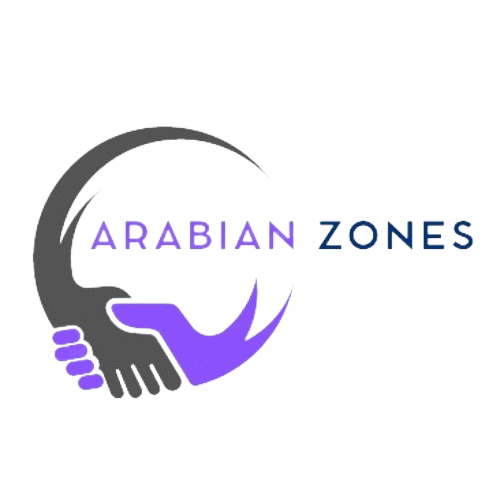By Aman Shah
Why business setup in dubai free zone are Better than Mainland
Table of Contents
ToggleElementary Information About Business Jurisdictions in UAE
The United Arab Emirates (UAE) has emerged as one of the successful leading economic cities of the world for the entrants of business and corporations. A key factor contributing to this appeal is the availability of two primary business jurisdictions: mainland and free zone. It is important for any organization aspiring to venture into the UAE market to be conversant with these two categories of establishment, particularly when considering a business setup in Dubai free zone.
The mainland zones permit enterprises to engage actions inside the whole UAE market, providing vast range of opportunities for organizations. Companies operating in the mainland part are governed by the federal and emirate legislation of the UAE.
Read our other blogs also- Business setup consultants in UAE
Mainland companies, for a long time, can only be owned by foreign investors through having a local counterpart although this can only own up to 49% of the company’s shares with an exception to professional service companies that are allowed to be 100% foreign-owned.
On the other hand, free zones are specific areas in the UAE provided for the foreigners to invest with several privileges granted. Business venturing in free zones allows for full foreign ownership, as well as licensing, full remittance of profits and free from import/export taxes. Every free zone is run by its own laws and regulatory body; this means that establishment of free zone companies is easier and specialized assistance is offered. Nevertheless, the free zone companies and enterprises are rather limited to being active only within the free zone or on the international level, except perhaps with the help of the local UAE trade intermediary.
Mainland and free zone jurisdictions’ differentiation provides the basis of the UAE’s heterogeneous business climate. In this way, by pointing out the relative strengths and weaknesses of each of the applied options, the entrepreneurs and other businesses will be able to make the right choices consistent with the pursued strategic objectives, and, as a result, achieve their success in the UAE market. Sections to come below shall provide a more detailed analysis that aimed at a comparative analysis of these two jurisdictions and to explain why free zones can be sometimes considered to be more preferable for the company setup.
Ownership and Control
Regarding the organization’s ownership structure, it is one of the most important factors that must be considered when establishing a business in the UAE. It is also important to not that free zones in the UAE have clear advantages in the issues of ownership and control. In general, it was noted that the establishment of the business in free zones allowed for 100% foreign ownership. This element is regarded as rather advantageous to overseas buyers who want to have the most influence in management and control affairs.
On the other hand, to set up a company in the mainland one needs a local partner. The above mentioned local sponsor, who should be a UAE national, has the legal right to own 51% of the business. This mandatory requirement is usually a compounding factor that attracts other issues into equation for the foreign investors. The requirement for a local partner may sometimes compromise the business’ independence in the operations or management of the business since there is an additional party that has a say on matters to do with the corporation.
The fact that the entirety of ownership is possible in free zones means that the foreign investors have an opportunity to practice their business models without the interference of the locals. This independence is most helpful to those firms that deem timeliness and rapidity in their decision-making processes as a sure way of creating competitive advantage in their respective markets. In addition, it makes the repatriation of profits and capital much easier because there is no as much restriction as with setups in the mainland.
In this case,business setup in dubai free zone guarantee full ownership for businessmen, which directly means a clearer organizational environment for many overseas businesspeople. Thus, it does not involve complications of partnership mergers, which, in turn, lessens the reliance on local sponsors. Thus, it creates a more favorable environment for free innovation, development, and forecasting, which is why free zones are highly attractive to many foreign investors who want to start a business in the UAE.
Tax Benefits
Benefits they offer. The corporate taxes could also be completely exempted from dubai free zone companies for several years, which sometimes even reach up to 50 years. This practical exemption on tax can greatly lessen operating expense and raise the chances of making profits thus free zones are preferred by sole proprietors and start-ups and other already set companies.
Besides, corporate income tax bail out, the free zone companies also enjoy zero taxes on both importation and exportation. This is especially beneficial to organizations that are importing and exporting products since the overall expenses on the products are reduced when entering the UAE market. The lack of such taxes puts free zone companies in a position in which they can price their merchandise more competitively in the international market; it opens up the trade option for them.
Another important field is Personal income tax, and again, free zone companies have a clear advantage. In most occasions, the employees together with the business owners who are based in free zones are not subjected to the payment of the personal income tax. This exemption could also make the UAE a preferred destination for all skillful employees and the expatriates and in addition the available talent in the free zones.
On the other hand, the mainland companies operating in the UAE have no such privilege in terms of taxes. Compared to many countries the UAE is still largely tax-friendly, though mainland companies are obliged to pay a Value Added Tax of 5 percent on goods and services. Also, they may not be out of corporate tax as the free zone entities, especially if they carry out trading activities in the free zones and in other areas.
In general, it can be concluded that the possibility to achieve relatively low tax rate for free zone Limited Liability Companies makes such companies more advantageous for many entrepreneurs willing to open their companies in the UAE. Concerning tax incentives, free zones afford corporations ‘ taxation holidays where they are not levied corporate tax, import/export tax, or personal income tax.
Ease of Setup and Administrative Efficiency
The first importance of engaging business setup in dubai free zone is the exceptional simplicity of business formation together with administrative solace. Some of the objectives of free zones are to ensure that business incorporation processes are fast and efficient wiping out many barriers that characterize most mainland companies. Business people will be happy to learn that the bureaucracy «overhead» is less of an issue, meaning that typically the approval of new ventures is smoother and faster.
From the literature review, it is evident that the simplified processes in the free zones is a clear demonstrations of the UAE’s effort in ensuring that only the best business environments are created. In general, support services by free zone authorities are extensive, which include help in document preparation, obtaining necessary licenses and visas. Such a level of support also relieves the business owners from the time-consuming process of dealing with the legal requirements on their own while at the same time, keeping them away from habitual business operations.
Thus, the process of company setup in the UAE by a mainland firm seems to be more complex and protracted. The legal system of businesses in the mainland entails meeting many and strict legal formalities such as the acquisition of different permits and approvals from several government bodies. This usually entails lots of paperwork and long waiting time, which may hinder the beginning of business activities. Second of all, the mainlan companies are legally bound to certain local sponsorship and other legal regulations which only add to the procedure.
Some of these factors are done away with through complexities by free zones as they carry a better environment for investors. This shows that there are several services that can be provided at one-stop-shop and therefore business people can transact all their formalities from one building and free zones which reduce time of setting up a business. This lowers the cost of doing business besides the time that would be used in the normal process of establishment and hence free zones are preferred for business by local and international clients.
In conclusion, due to simple procedures of formation and better administration, free zones are more favorable for the business people who want to establish the initial business ground in the UAE. The less bureaucratic settings, low paper work and less time taken for approvals can be considered a comparative advantage over the mainland company formation that has more bureaucratic formalities.
Business Activities and Restrictions
In terms of the activities allowed in free zones versus the mainland when choosing the company setup in the UAE, it is crucial to know these distinctions. Free zones in the UAE exist with the purpose of facilitating certain types of business and thus, they provide many options of activities. Such zones are highly suitable for sectors such as information technology, media, financial and logistics. These industries can benefit from simpler procedures that are specific to their fields; there will be less paperwork and quicker licensing methods for the entrepreneurs. In addition, free zones include tailored infrastructure and utilities that creates suitable environment for one or another kind of employees or businessmen.

Nevertheless, there are some limitations concerning business functions and their implementation, which are applicable only to the operations of the mainland. These include those that are operational in the regional domains, including the sales, food services, and estate. Some industries which may need direct access with the UAE market may have no option than to operate in the mainland. Mainland Dubai Company can cover the whole of the UAE and undertake a wider variety of activities which distinguish this type of business from free zone restrictions.
Another important factor which must be noted is the nature of free zones, which afford 100% foreign ownership while, in mainland businesses local partner or sponsor is often necessary, who holds substantial stake in the business. This requirement may impact the choice due to the level of autonomy and total control over the business that entrepreneurs want to have. Also, free zone companies cannot freely trade with the local market since a limited number of products and services may be sold to the local market directly; this generally requires obtaining a local agent or distributor.
Hence, it is pertinent that this study examines the meticulous differences in business activities and limitations of free zones and the main land of UAE in fostering or hampering an entrepreneur’s location decision. It implies that by choosing either of the options depending on business strategy and its accordance with the legal rules, entrepreneurs will be able to benefit from the given features that are unique for each kind of business setup in the UAE.
Office Space and Flexibility
Another major attraction of the free zones in the UAE is the tremendous choice of the available office spaces as a location for doing the business. Services provided in free zones are flexible, and offices help free zones meet the needs of every business person, including startuppers, freelancers, and, of course, large companies. Fully serviced offices, virtual offices, co-working spaces are some of the options available for the mainland business enhances the flexibility typical of these jurisdictions for the entrepreneur.
For enterprises who want to have a low overhead cost but also want to portray a formal business image the virtual offices are especially appealing. They provide such basic services like receiving and forwarding post, answering the phone on the client’s behalf and providing conference space even though the client does not have a physical office that they work from full time. These are considered beneficial as they not only lower the expenses incurred on renting pricey office spaces but also allow the amenities to be expanded or reduced according to the business’s requirements.
In Free Zones, the flexibility is even higher, this is because the coworking areas also promote innovation and networking among the tenants. These buildings are fitted with today’s state of the art features offering fast internet connections, and easily negotiable lease agreements that make them suitable for the young tech firms. Dependence on the services provided allows the organization to accommodate the desks or private offices without committing to a long-term lease, which is very necessary for companies with fluctuating growth patterns.
On the other hand, companies existing in main ports typically encounter strict demands concerning their offices. Typically, the business leasing contracts tend to be long-term, entrenched and quite costly. Besides, it may also increase the size of the office space as per the mainland regulation required to be complied with even for an SME, thus incurring unwarranted expenditures. The relative absence of flexible workspace in the mainland hinders the dynamism and efficiency of resource management which is vital in running a business.
Thus, the availability and variations of office space within free zones is one of the noteworthy advantages when companies seek to enter the UAE market. Including virtual offices, co-working spaces, and many others, free zones create the best conditions to start and develop successful businesses and adapt to new shifts.
Regulatory Environment and Compliance
The legal environment in the UAE is one of the key factors when it comes to Company Formation and has Free Zones and Mainland setups with major differences. Such zones in the UAE can be characterized by the favorable legal frameworks of doing business which are aimed at the attraction of investment and development of the economy. These zones provide the situation of relative ease as far as procedures and particularly avoiding the scrupulous legal constraints that are present in the mainland locales for the companies.
Operational requirements can also be mentioned as one of the advantages of forming a company in a free zone, as they are much simplified here. Unauthorized regions have their guidelines that could be relatively more propitious compared to the normal regions in granting licenses and permits. This independency reduces the time required to set up business and most of the bureaucratic hindrances so that the business can quickly start operation. On the other hand, the mainland firms face relatively strict rules and regulations of the DED and other government organizations which takes more time in the official procedures.
Furthermore, depending on the free zone’s type and focus, compliance might be easier to deal with as, more often than not, free zones have different legal frameworks designed for specific industries only. For instance, free zones offer sector-related incentives and amenities, including the logistics zones, media city or technology city, and others. By so doing, it is possible to strike the right balance in implementing the regulatory requirements and the specific running of the businesses with in the zone, hence, the enhanced environment for development and innovation.
The fourth locus of convenience is the fact that there are no strict requirements regarding the ownership of the free zones. Foreign investors are allowed to own 100% of the investment in free zone companies, but mainland companies need support of a local sponsor and a Emirati partner for specific kind of business. This flexibility is one of the attractiveness factors for many IVEs because it allows them to maintain full control over their business and minimize the need for complicated partnerships with local partners.
Overall, it can be concluded that the free zones’ legal framework is much lighter and promotes rather than hinders business, which makes the former more preferable. The enforceability of regulatory compliance in addition to the segment and type-specific assistance, as well as beneficial ownership regimes, puts free zones on an advantageous place for organizations that are interested in expanding their subsidiary in the UAE.
Conclusion: Making the Right Choice
As we have seen in this blog post, the stages to consider when choosing between dubai free zone companies and mainland companies are; Some of the benefits of free zones include;; One hundred percent foreign ownership, tax exemption and least bureaucratic procedures which make free zones to be suitable for foreign investors or any investor. On the other hand, while mainland setups entail that business can establish anywhere in the UAE, engage in government contract, and have access to the local markets.
Studying the peculiarities of a particular business and its objectives is critical to choosing the appropriate option. If for instance, your primary strategy is to use the tax holidays and other incentives and your business does not have to interface with the market frequently then the free zone formation may be ideal. On the other hand if your business model requires engaging with a wider UAE market or competing for government contracts, a mainland establishment might be preferable.
One must also think about the type of operations you will be conducting, the target field or niche of users you want to attract, and your further prospects on growing the business. Each free zone has its own laws and incentives varies from the other and thus, to find the most appropriate free zone for your business, it is essential to consult. Hence, knowledge of the political and legal acoustics of mainland operations will also be useful in arriving at the right decision.
However, to deal with all these and get the best outcome for your company setup, the best option is to seek legal advice from professionals with adequate knowledge of the UAE business laws and policies. Legal and other experts can suggest the most appropriate legal environment to incorporate in for a client depending on the business plan of the client and legal requirements of the selected country.
In the end, one should consider whether a free zone best fits your company’s needs or whether the mainland would suffice basing on the company needs, the development potential, and other requirements. Thus, making the right choice, you will be able to use the specific features of each jurisdiction providing a clear basis for the further development of your business in the UAE.






